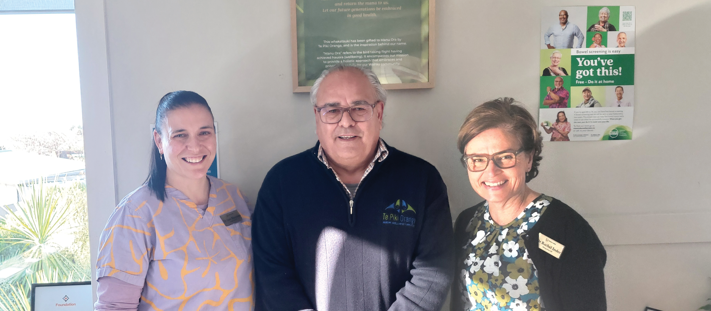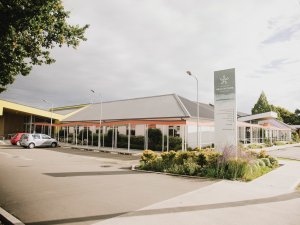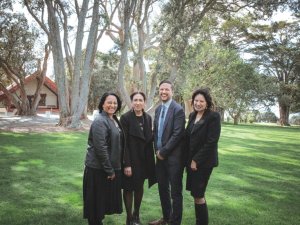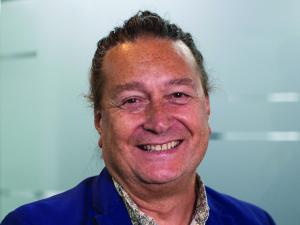Respiratory physician Lutz Beckert considers chronic obstructive pulmonary disease management, including the prevention of COPD, the importance of smoking cessation and pulmonary rehabilitation, and the lifesaving potential of addressing treatable traits. He also discusses the logic of inhaler therapy, moving from single therapy to dual and triple therapy when indicated, as well as other aspects of management
An alternative to ‘broken’ model: Review finds kaupapa Māori practice is making a difference
An alternative to ‘broken’ model: Review finds kaupapa Māori practice is making a difference

Kia ora, please enjoy our Summer Hiatus selection of stories and comment from throughout 2023, curated by our editorial team. This article was first published on 30 August. We will be back from our summer break on 15 January. Happy reading
Chosen by Martin: I enjoyed popping over to Blenheim (I work from home in Nelson these days) to meet some of the Manu Ora crew. Theirs is the sole kaupapa Māori general practice in the top of the South Island and their story is one of hope in a year that has been pretty dark for many
“We wanted to partner with organisations that we knew delivered quality Māori healthcare”
A converted house at the foot of the Wither Hills on the south side of Blenheim is home to Manu Ora, the only kaupapa Māori general practice operating in the upper South Island.
It’s here that two GPs and a Māori primary care provider worked together to establish a non-profit, charitable company to own and run the practice, which they opened in August 2021.
The registered charity Manu Ora Ltd is 50 per cent owned by two of the practice’s GPs, Sara Simmons (Ngāi Tahu) and Rachel Inder, who were both locally born and raised. The other half is held by Te Piki Oranga, which operates in Te Tau Ihu o Te Waka A Maui (the top of the south – Marlborough, Nelson and Tasman).
The practice was established following engagement with Te Tau Ihu iwi.
An evaluation of its first year concluded some vulnerable patients without access to primary care may have died if not for Manu Ora. A reduction in urgent care and emergency department presentations among the practice’s population was also shown.
READ MORE
- BUSINESS: Big beast practice started solo: Feilding super-sized centre not immune to staff shortages
- NEWS: The magic of ‘by Māori, for Māori’
- NEWS: Historic decision was hard-fought, says kaupapa Māori PHO boss
Dr Simmons says she and Dr Inder knew each other and both enjoyed serving vulnerable communities, complex patients and whānau Māori.
Establishing a charity, says Dr Inder, was a conscious decision reflecting their ethos on healthcare.
“The traditional model is broken because of the business side of it, the pressure to make money and enrol lots of people,” she says. “The capitation model is designed so that you enrol lots of people and it’s difficult to service them.”
Other factors that influenced how they have structured Manu Ora include Marlborough’s high rate of GP burnout (like much of New Zealand), and long patient waiting times for routine appointments in the region.
“We wanted to partner with organisations that we knew delivered quality Māori healthcare,” says Dr Simmons. “We knew Te Piki Oranga and the comprehensive care that they already provided to Māori, but knew they also didn’t have any doctors, so we went to them…”
Te Piki Oranga’s pūkenga kaiwhakahaere-site manager for Wairau, Ricky Carr, says that at the same time, his organisation was looking for a general practice partner. It had approached some, and then came to an agreement to form Manu Ora.
“It has all coalesced into a service that really knits well with the types of service that we provide and completes the loop really,” Mr Carr says.
Te Piki Oranga has premises in Wairau Blenheim, Whakatū Nelson, Waimeha Richmond and Motueka. Services include mental health and addiction, cervical screening, Well Child Tamariki Ora, driver training and Iwi Community Panels, a restorative justice initiative. And when needed, Te Piki Oranga also directly helps Manu Ora patients with transport to appointments.
Manu Ora has four GPs, three nurses and a health coach. Its approach includes 20-minute consultations; an hour-long consultation with new patients, starting with a nurse and followed by a GP; waiving fees if a patient can’t pay; quickly erasing bad debts; and paying nurses at rates higher than the main collective agreement.
Non-healthcare aspects include making donated food available to patients from shelves in the clinic and helping to house patients in need by working with a housing NGO.
A member of Marlborough PHO, the practice relies heavily on grants, including to help cover bad debts. Its enrolled patient fees for Community Services Card holders are slightly lower than at other Marlborough practices, but at $60, its non-CSC adult fees are higher.
Dr Simmons says, however, the evaluation found fees were waived for 55 per cent of consults in Manu Ora’s first year. Asked about the impact of that on finances, Dr Inder says, “We’ve been successful in attracting funding at the moment to cover the deficits…
“It does run at a deficit because that is the love economy.”
After growing faster than expected, Manu Ora has about 1400 enrolled patients and now limits new enrolments to whānau Māori in crisis and those with complex needs. About 30 per cent of enrolled patients are Māori, compared with 12 per cent for Marlborough PHO as a whole.
Research firm Sapere was engaged by Manu Ora, with funding from the Ministry of Health’s Māori Provider Development Scheme, to do the evaluation. It found a “much higher level of service” than at comparably sized general practices.
Sapere’s report says Manu Ora has a higher than usual ratio of clinicians to enrolled patients: one full-timeequivalent GP to 1000 enrolled patients, compared to an estimated average of around 1:1700 in a 2014 MAS survey.
“This is a key point of difference and allows for not only longer appointment times but enables clinicians more non-patient-facing time to do vital follow-up and collaborate with other agencies working with vulnerable whānau,” says the report.
“Cost-effectiveness is not yet clear and depends upon several wider factors that remain to be considered such as longer-term outcomes, which will take more time to emerge. However, the support from funders that has been provided in the initial phase suggests that several organisations see significant value in providing comprehensive, whānau-centred care for a local population with high need.
“Where the service is providing care for people who would otherwise not have any access to primary healthcare, or only to care that is ineffective for them, the marginal gains of the service are likely to be of high value. One organisation believes there would have been deaths if Manu Ora were not in place and, based on the whānau interviews, we believe this would be a possibility.”
- 20-minute consultations.
- An hour-long consultation with new patients, starting with a nurse and followed by a GP.
- Waiving fees if a patient can’t pay.
- Quickly erasing bad debts.
- Paying nurses at rates higher than the main collective agreement.
Non-healthcare aspects include making donated food available to patients from shelves in the clinic and helping to house patients in need by working with a housing NGO.







![Barbara Fountain, editor of New Zealand Doctor Rata Aotearoa, and Paul Hutchison, GP and senior medical clinician at Tāmaki Health [Image: Simon Maude]](/sites/default/files/styles/thumbnail_cropped_100/public/2025-03/Barbara%20Fountain%2C%20editor%20of%20New%20Zealand%20Doctor%20Rata%20Aotearoa%2C%20and%20Paul%20Hutchison%2C%20GP%20and%20senior%20medical%20clinician%20at%20T%C4%81maki%20Health%20CR%20Simon%20Maude.jpg?itok=-HbQ1EYA)
![Lori Peters, NP and advanced health improvement practitioner at Mahitahi Hauora, and Jasper Nacilla, NP at The Terrace Medical Centre in Wellington [Image: Simon Maude]](/sites/default/files/styles/thumbnail_cropped_100/public/2025-03/2.%20Lori%20Peters%2C%20NP%20and%20advanced%20HIP%20at%20Mahitahi%20Hauora%2C%20and%20Jasper%20Nacilla%2C%20NP%20at%20The%20Terrace%20Medical%20Centre%20in%20Wellington%20CR%20Simon%20Maude.jpg?itok=sUfbsSF1)
![Ministry of Social Development health and disability coordinator Liz Williams, regional health advisors Mary Mojel and Larah Takarangi, and health and disability coordinators Rebecca Staunton and Myint Than Htut [Image: Simon Maude]](/sites/default/files/styles/thumbnail_cropped_100/public/2025-03/3.%20Ministry%20of%20Social%20Development%27s%20Liz%20Williams%2C%20Mary%20Mojel%2C%20Larah%20Takarangi%2C%20Rebecca%20Staunton%20and%20Myint%20Than%20Htut%20CR%20Simon%20Maude.jpg?itok=9ceOujzC)
![Locum GP Helen Fisher, with Te Kuiti Medical Centre NP Bridget Woodney [Image: Simon Maude]](/sites/default/files/styles/thumbnail_cropped_100/public/2025-03/4.%20Locum%20GP%20Helen%20Fisher%2C%20with%20Te%20Kuiti%20Medical%20Centre%20NP%20Bridget%20Woodney%20CR%20Simon%20Maude.jpg?itok=TJeODetm)
![Ruby Faulkner, GPEP2, with David Small, GPEP3 from The Doctors Greenmeadows in Napier [Image: Simon Maude]](/sites/default/files/styles/thumbnail_cropped_100/public/2025-03/5.%20Ruby%20Faulkner%2C%20GPEP2%2C%20with%20David%20Small%2C%20GPEP3%20from%20The%20Doctors%20Greenmeadows%20in%20Napier%20CR%20Simon%20Maude.jpg?itok=B0u4wsIs)
![Rochelle Langton and Libby Thomas, marketing advisors at the Medical Protection Society [Image: Simon Maude]](/sites/default/files/styles/thumbnail_cropped_100/public/2025-03/6.%20Rochelle%20Langton%20and%20Libby%20Thomas%2C%20marketing%20advisors%20at%20the%20Medical%20Protection%20Society%20CR%20Simon%20Maude.jpg?itok=r52_Cf74)
![Specialist GP Lucy Gibberd, medical advisor at MPS, and Zara Bolam, urgent-care specialist at The Nest Health Centre in Inglewood [Image: Simon Maude]](/sites/default/files/styles/thumbnail_cropped_100/public/2025-03/7.%20Specialist%20GP%20Lucy%20Gibberd%2C%20medical%20advisor%20at%20MPS%2C%20and%20Zara%20Bolam%2C%20urgent-care%20specialist%20at%20The%20Nest%20Health%20Centre%20in%20Inglewood%20CR%20Simon%20Maude.jpg?itok=z8eVoBU3)
![Olivia Blackmore and Trudee Sharp, NPs at Gore Health Centre, and Gaylene Hastie, NP at Queenstown Medical Centre [Image: Simon Maude]](/sites/default/files/styles/thumbnail_cropped_100/public/2025-03/8.%20Olivia%20Blackmore%20and%20Trudee%20Sharp%2C%20NPs%20at%20Gore%20Health%20Centre%2C%20and%20Gaylene%20Hastie%2C%20NP%20at%20Queenstown%20Medical%20Centre%20CR%20Simon%20Maude.jpg?itok=Z6u9d0XH)
![Mary Toloa, specialist GP at Porirua and Union Community Health Service in Wellington, Mara Coler, clinical pharmacist at Tū Ora Compass Health, and Bhavna Mistry, specialist GP at Porirua and Union Community Health Service [Image: Simon Maude]](/sites/default/files/styles/thumbnail_cropped_100/public/2025-03/9.%20Mary%20Toloa%2C%20Porirua%20and%20Union%20Community%20Health%20Service%20in%20Wellington%2C%20Mara%20Coler%2C%20T%C5%AB%20Ora%20Compass%20Health%2C%20and%20Bhavna%20Mistry%2C%20PUCHS%20CR%20Simon%20Maude.jpg?itok=kpChr0cc)